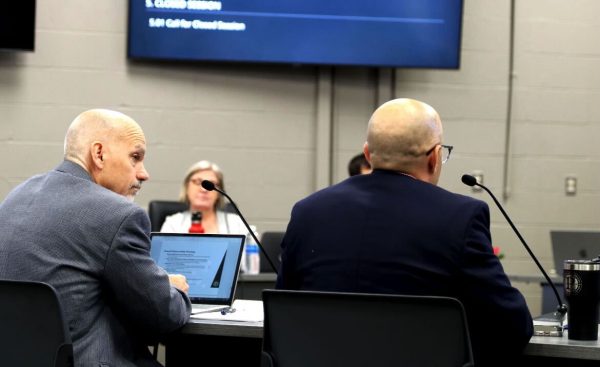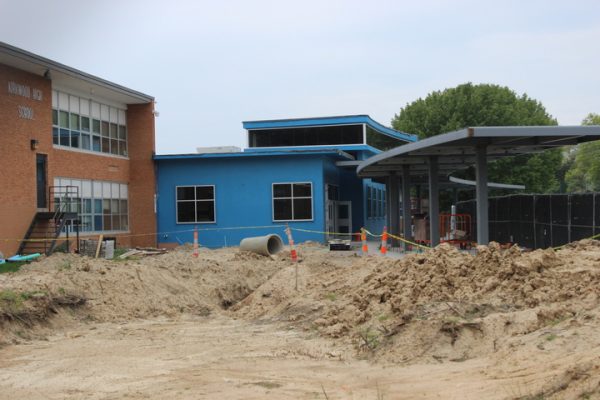Five things you need to know about the government shutdown

Photo Courtesy of Google Under the Creative Commons License
The U.S. government has been under a partial shutdown since Saturday, Dec. 22. Yet, nearly 30 percent (83/311) of KHS students don’t know the reason for the shutdown, and only 35 percent (109/310) of KHS students feel informed about it. Though it may seem distant, the shutdown affects the lives of everyone in the United States. Here are five quick things you need to know about the government shutdown.
-
The government is only partially shut down.
Seventy-five percent of the budget was finalized before the shutdown, meaning most departments have already received funding for the year and can continue to operate. However, many important services such as the Department of Homeland Security, the Justice Department, the Interior Department, the State Department, the Parks Department, the Department of Housing and Urban Development and others have yet to be funded.
-
Trump Tower in D.C. remains staffed by federal workers during the shutdown.
National Park Service rangers continue to work at one specific national park, Trump Tower D.C. Since the building houses a 120-year-old clock tower, it qualifies as a national park. The tour guides and ticket checkers at this Trump-owned attraction are considered park rangers and are still being paid with taxpayer money. While Yosemite fills with litter and reckless pedestrians fall to their death at the Grand Canyon, federal workers continue to staff the hotel.
-
This is the longest government shutdown in U.S. history.
Previously, the longest government shutdown was from Dec. 5, 1995, to Jan. 6, 1996, when former President Bill Clinton fought former Republican Speaker of the House Newt Gingrich over tax policy. Clinton initiated a 21 day shutdown by vetoing a Republican spending bill which reduced taxation for funding for Medicare, education and the environment. There was a 16-day shutdown under the Obama administration in 2013 over federal healthcare funding. This is the second shutdown during Trump’s presidency.
-
It doesn’t just affect the politicians.
During this shutdown, more than 800,000 federal workers won’t receive a paycheck. Nearly 40 million people lose access to food stamps. Security for transportation services like airports is weakened. The federal courts system is out of money and the Food and Drug Administration is no longer regulating the country’s food supply.
-
It could result in a state of national emergency.
Trump has mentioned the possibility of national emergency in the event that no deal can be reached to fund the border wall. Trump has argued that not funding the wall could pose an immediate threat to national security and is therefore reason enough for a national emergency. This is important because in a state of national emergency, the president can suspend habeas corpus, or the right to a fair trial, for those in opposition to the government. The National Emergencies Act of 1976 allows for the president to declare a national emergency in virtually any situation they deem appropriate. In this case, the declaration could mean total executive control to regulate the border however the president sees fit and suppression of public opposition to any such action. So in other words, no one would be able to stand in the way of his big, beautiful wall.
Your donation will support the student journalists of Kirkwood High School. Your contribution will allow us to purchase equipment and cover our annual website hosting costs.

she/her
Favorite musical artist: Bon Iver
Favorite quote: “Life turns on a dime.” - Stephen King
Favorite Pantone shade:











